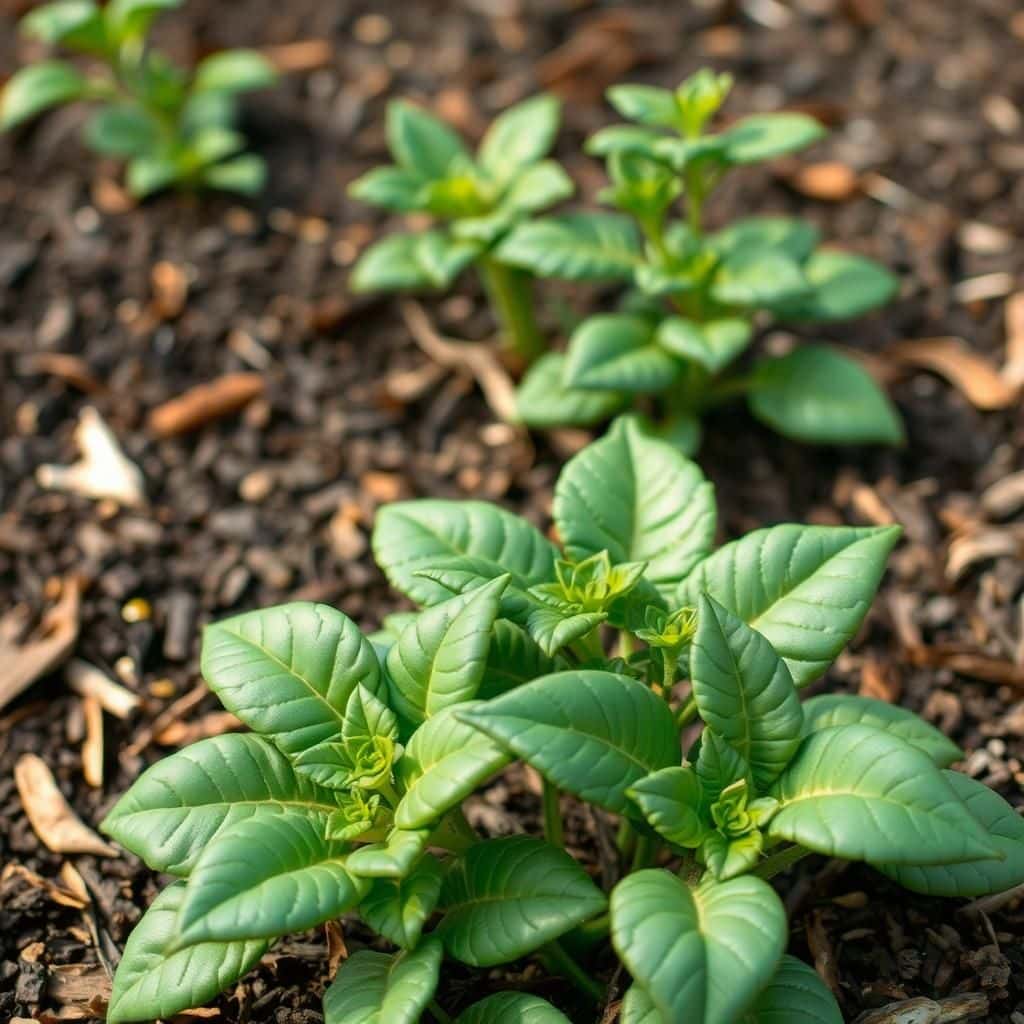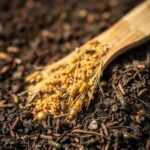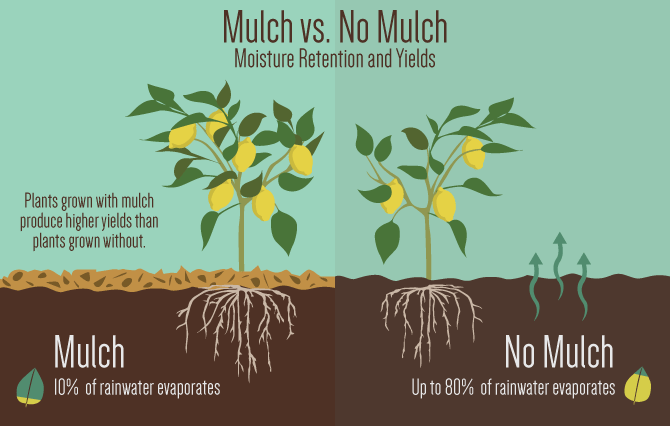What Plants Grow Best in Mulch? Discover the Top Choices for Your Garden

Mulch is a gardener's best friend, providing numerous benefits such as moisture retention, temperature regulation, and weed suppression. However, not all plants thrive equally well when mulched. Understanding which plants benefit most from this organic layer can significantly enhance your garden's health and productivity. In this article, we will explore the top choices for plants that flourish in mulch. From colorful perennials to robust vegetables, discover the species that not only grow best but also complement the advantages of using mulch in your gardening endeavors. Enhance your gardening skills by learning how to optimize plant health with proper mulching techniques.
Best Plants for Mulch Growth
Using mulch in your garden can significantly benefit many plants by retaining moisture, suppressing weeds, and regulating soil temperature. Various plants thrive in mulched conditions, particularly those that benefit from the organic matter as it decomposes and provides essential nutrients. Perennials such as hostas, daylilies, and ajuga flourish under mulch as it helps keep their roots cool and moist. Additionally, vegetable plants like tomatoes and squash also greatly appreciate the cushioning effect of mulch, which prevents soil erosion and encourages greater yields. Ultimately, a diverse array of plants can benefit from mulch, making it a vital aspect of gardening.
Perennial Plants
Perennial plants, such as hostas and daylilies, are excellent candidates for mulching because they establish deep root systems that thrive in the moist conditions that mulch creates. The organic layer not only protects their roots from extreme temperatures but also provides a slow release of nutrients as the mulch decomposes over time. This makes mulching a highly effective practice for enhancing the growth and health of perennial flowers and foliage.
Vegetable Gardens
In the context of vegetable gardens, plants like tomatoes and peppers often grow best when mulched. Mulch helps to retain soil moisture which is critical during the hot summer months, helping to reduce the frequency of watering. Furthermore, mulch can help prevent soil-borne diseases by keeping soil from splashing onto the plants. By using organic mulch like straw or wood chips, gardeners can ensure that their veggies receive the nutrients needed for optimal growth.
Shrubs and Hedges
Shrubs and hedges such as boxwoods and azaleas also benefit significantly from mulching. The layer of mulch around these plants offers insulation, maintaining a more consistent soil temperature and moisture level. Mulch also aids in suppressing weeds that compete for nutrients and water, allowing shrubs to establish and grow without added stress from competition. Proper mulching can thus ensure vibrant growth and longevity for these landscape plants.
Ground Covers
Ground cover plants like creeping thyme and ajuga thrive when mulched. The mulch layer acts as a protective barrier that helps these low-growing plants retain moisture while preventing erosion and soil compaction. This is particularly important for ground covers that are more delicate and need that extra layer of environmental protection to spread out and fill in effectively, preventing weeds from taking over.
Flowering Plants
Flowering plants, such as lilies and aster, see impressive benefits from the introduction of mulch. The mulch aids in maintaining a stable moisture level in the soil, crucial for flowering plants as they develop blooms. Additionally, as the mulch decomposes, it enriches the soil with organic matter, promoting more vibrant flowers and healthier plants overall. Thus, incorporating mulch in their care can substantially improve flowering and overall plant health.
| Plant Type | Benefits of Mulching |
|---|---|
| Perennials | Moisture retention and nutrient release |
| Vegetables | Disease prevention and soil moisture |
| Shrubs | Temperature regulation and weed suppression |
| Ground Covers | Erosion protection and moisture retention |
| Flowering Plants | Stable moisture and enhanced blooms |
What plants do well in mulch?

Mulching is an effective gardening technique that involves covering the soil with a protective layer of material. It not only helps retain moisture but also regulates soil temperature, suppresses weeds, and improves soil health over time. Various plants thrive in mulched environments, benefiting from the advantages provided by the mulch. Here’s a look at which plants do well in mulch.
Annuals That Benefit from Mulch
Annual plants often thrive in mulched settings, where they can appreciate improved moisture retention and nutrient circulation. Some notable annuals that do well with mulch include:
- Petunias: These vibrant flowers appreciate the moisture retention provided by mulch, leading to healthier blooms.
- Marigolds: Known for their pest-repelling properties, they thrive in rich, mulched soil.
- Snapdragons: They flourish in mulched beds, benefiting from improved drainage and temperature regulation.
Perennials That Flourish with Mulch
Perennial plants are greatly supported by mulching, which helps them endure harsh conditions while allowing for better growth in the following years. Some beneficial perennials include:
- Hostas: These shade-loving plants thrive in mulched areas, enjoying moisture without the risk of rot.
- Daylilies: Mulch assists in keeping the soil temperature moderated, encouraging vibrant growth and longer blooms.
- Sedums: This drought-tolerant plant benefits from mulch by reducing water evaporation from the soil.
Vegetables That Thrive in Mulched Gardens
Mulching can have a significant positive impact on various vegetable crops, offering improved yields and healthier plants. A few vegetables that do particularly well with mulch include:
- Tomatoes: They enjoy a consistent moisture supply that mulch can provide, preventing blossom end rot.
- Peppers: Like tomatoes, they benefit from mulch's ability to maintain soil moisture and warmth.
- Cucumbers: Mulch can help these vining plants retain moisture, resulting in better growth and fruit production.
Flowering Plants That Appreciate Mulch
Certain flowering plants not only look beautiful but also thrive when supported by mulch. Here are some flowering plants that benefit from this technique:
- Roses: Mulch helps to keep the soil moisture levels stable, promoting healthy blooms and disease resistance.
- Lavender: This drought-tolerant plant flourishes in mulched settings, benefiting from improved drainage and moisture control.
- Echinacea: Also known as coneflower, it enjoys the nutrient-rich soil that mulch helps create.
Herbs That Are Enhanced by Mulching
Many herbs thrive in mulched environments, where they can enjoy necessary moisture levels while deterring weeds. Some herbs that do well with mulch include:
See also:
- Basil: This tender herb enjoys consistent moisture levels and benefits greatly from a layer of mulch.
- Thyme: A drought-resistant herb, it thrives in mulched areas where moisture retention is balanced with excellent drainage.
- Oregano: Like thyme, it benefits from the stable environment that mulch provides, which promotes a robust growth cycle.
What plants do not like mulch?
:strip_icc()/mulching-mistakes-to-avoid-02-5665061-8856e06984a6497390598c547eadc606.jpg)
Mulch is a popular gardening practice that involves covering the soil around plants with organic or inorganic material to retain moisture, suppress weeds, and improve soil quality. However, not all plants benefit from mulching, and some may even suffer from its application. Here is a detailed examination of the plants that generally do not like mulch.
1. Plants That Require Dry Conditions
Certain plants thrive in dry environments and can be adversely affected by excess moisture retained by mulch. These include:
- Succulents: Such as Aloe Vera and Sedum, which prefer well-drained soil.
- Cacti: Native to arid environments, they may rot in overly moist conditions due to mulch.
- Lavender: This plant requires excellent drainage and can suffer from root rot if moisture is not managed properly.
2. Fruiting Plants
Some fruiting plants prefer direct exposure to the soil rather than a layer of mulch which can hold moisture. This can lead to pest problems or fungal diseases. Examples include:
- Tomatoes: They may develop blight due to overly moist conditions beneath mulch.
- Peppers: Excess moisture and humidity can inhibit fruit production and lead to issues like blossom end rot.
- Strawberries: While some may benefit, too much mulch can cause crown rot.
3. Root Vegetables
Root vegetables often grow best with minimal interference from top layers of mulch, which can impede their growth. Such vegetables include:
- Carrots: They can be stunted or misshapen if large amounts of mulch are used.
- Radishes: Similarly, they prefer to grow directly in the soil without the obstruction of mulch.
- Potatoes: The risk of tuber rot increases with extra moisture from mulch.
4. Certain Perennials
Some perennial plants may not thrive when surrounded by mulch, as it can keep the soil too damp or too warm. This could include:
- Bee Balm: While it tolerates some moisture, excessive mulch can lead to root rot.
- Phlox: These plants do better with less mulch which helps them avoid fungal diseases.
- Hellebores: They prefer their roots to stay cool and dry, making thick layers of mulch unfavorable.
5. Ornamental Grasses
Ornamental grasses typically thrive in well-drained conditions and often do not require mulch for protection. Examples include:
- Pampas Grass: Preferring dry conditions, it may succumb to rot if covered with mulch.
- Blue Fescue: Excess moisture can lead to decline in health and vigor.
- Switch Grass: It thrives in exposed soil, where it can develop a strong root base.
What are 5 disadvantages of mulching?

Certainly! Here’s a detailed response regarding the disadvantages of mulching, structured with appropriate subtitles.
Disadvantages of Mulching
Mulching has various benefits, but it also comes with certain drawbacks. Here are five notable disadvantages of mulching:
1. Pest Attraction
Mulch can attract various pests, which can be detrimental to plant health. Certain types of mulch like wood chips may harbor insects, rodents, or even larger pests that can damage plants.
- Insect Infestation: Some kinds of organic mulch can foster conditions that attract pests like ants, termites, or beetles.
- Rodent Problems: Thick layers of mulch can provide a desirable habitat for rodents, increasing their presence in garden areas.
- Diseases: Stagnant moisture underneath mulch can lead to fungal growth, inviting more pests and diseases.
2. Nutrient Competition
Organic mulches decompose over time, which can initially tie up essential nutrients in the soil as they break down. This phenomenon can lead to competition with plants for vital nutrients.
- Nitrogen Leaching: Microorganisms require nitrogen to decompose mulch, pulling it from the soil and potentially affecting plant growth.
- Soil pH Impact: Decomposing materials can alter the soil's pH, making it less suitable for certain plants.
- Impaired Root Growth: Nutrient deficiencies in the soil can stunt root development and overall plant health.
3. Water Retention Issues
While mulch is normally beneficial for preserving soil moisture, excessive or poorly applied mulch can lead to water retention issues, potentially causing root rot or other moisture-related problems.

- Over-Saturation: Thick layers can prevent water from penetrating the soil, leading to water-logged conditions.
- Root Health: Prolonged excess moisture can create anaerobic conditions detrimental to root survival.
- Surface Drying: The top layer may dry out while the bottom is too wet, leading to an inconsistency in moisture levels.
4. Aesthetic Maintenance
Certain types of mulch can become unattractive as they age or become displaced, requiring more frequent maintenance to keep the garden looking tidy.
- Color Fading: Organic mulches may lose their vibrant colors over time, turning grey or dull.
- Shifting: Erosion or movement due to rain and wind can lead to uneven coverage, requiring regular topping off.
- Weed Growth: If weed seeds settle in the mulch, it could become a breeding ground for unwanted plant growth.
5. Cost Considerations
Depending on the type of mulch chosen, costs can add up quickly, especially when large areas need to be covered, which may not be feasible for every gardener.
- Initial Investment: High-quality mulch materials can be expensive and may strain budget considerations.
- Replacement Needs: Organic mulches break down over time and require periodic replacement, adding to long-term costs.
- Delivery Costs: If purchasing in bulk, delivery fees can contribute to a higher overall expense.
Does mulch make plants grow better?

Certainly! Here’s a detailed response to the question about mulch and its impact on plant growth, along with related subheadings.
Does Mulch Make Plants Grow Better?
Mulch is a layer of material applied to the surface of the soil around plants and garden beds. It comes in various forms, including organic materials like wood chips, straw, and leaves, as well as inorganic options like stones and plastic. The use of mulch can significantly enhance plant growth by providing a variety of benefits.
1. Moisture Retention
One of the primary benefits of mulch is its ability to retain moisture in the soil. By reducing evaporation, mulch allows plants to have more consistent access to water, which is crucial for their growth.
- Helps maintain soil moisture levels.
- Reduces the need for frequent watering.
- Supports healthy root development.
2. Weed Control
Another significant advantage of using mulch is its effectiveness in suppressing weeds. A thick layer of mulch can block sunlight from reaching weed seeds, thus preventing them from germinating and spreading.
- Limits competition for nutrients and water.
- Reduces the time and effort spent on weeding.
- Improves the overall appearance of the garden.
3. Soil Temperature Regulation
Mulch helps in regulating soil temperature by providing insulation. This is particularly beneficial in extreme weather conditions, where mulch keeps the soil warm during cold months and cools it during heat waves.
- Encourages early seed germination in spring.
- Protects plant roots from temperature extremes.
- Promotes a stable environment for beneficial soil organisms.
4. Nutrient Enhancement
Organic mulches gradually break down, adding nutrients back into the soil. This process enhances soil fertility, providing essential elements that plants need for growth.
- Improves soil structure and health.
- Encourages microbial activity, which aids nutrient uptake.
- Can reduce the need for chemical fertilizers.
5. Erosion Control
Mulch serves as a protective layer that helps prevent soil erosion. By shielding the soil from heavy rainfall and wind, mulch ensures that the soil remains intact and nutrient-rich, which fosters a healthy growing environment for plants.
- Keeps soil in place during heavy rains.
- Reduces runoff and loss of essential nutrients.
- Maintains the integrity of planting beds.
Questions from Our Readers
What are the best plants to grow with mulch?
When it comes to mulching, many types of plants thrive, especially perennials and vegetables. Common choices include tomatoes, peppers, squash, and marigolds, as they benefit significantly from the moisture retention and temperature regulation provided by mulch.
How does mulch benefit plant growth?
Mulch offers numerous benefits for plant growth, including moisture retention, weed suppression, and temperature moderation. By creating a protective layer, mulch helps maintain a consistent soil temperature and keeps plants well-hydrated, ultimately supporting healthy root development.
Is there a specific type of mulch that works best?
While various types of mulch exist, organic mulches such as wood chips, straw, and bark tend to be the most beneficial for plants. These materials not only provide insulation and moisture retention but also break down over time, enriching the soil with nutrients.
See also:
Can mulch harm any plants?
Yes, while mulch is generally beneficial, it can pose risks if applied incorrectly. Over-mulching can lead to disease and root rot, especially in sensitive plants like bulbs or annuals. It's essential to apply a suitable depth and keep mulch away from the plant stems to avoid potential harm.

If you want to read more articles like What Plants Grow Best in Mulch? Discover the Top Choices for Your Garden, we recommend you check out our Mulch category.
Leave a Reply
Related Articles